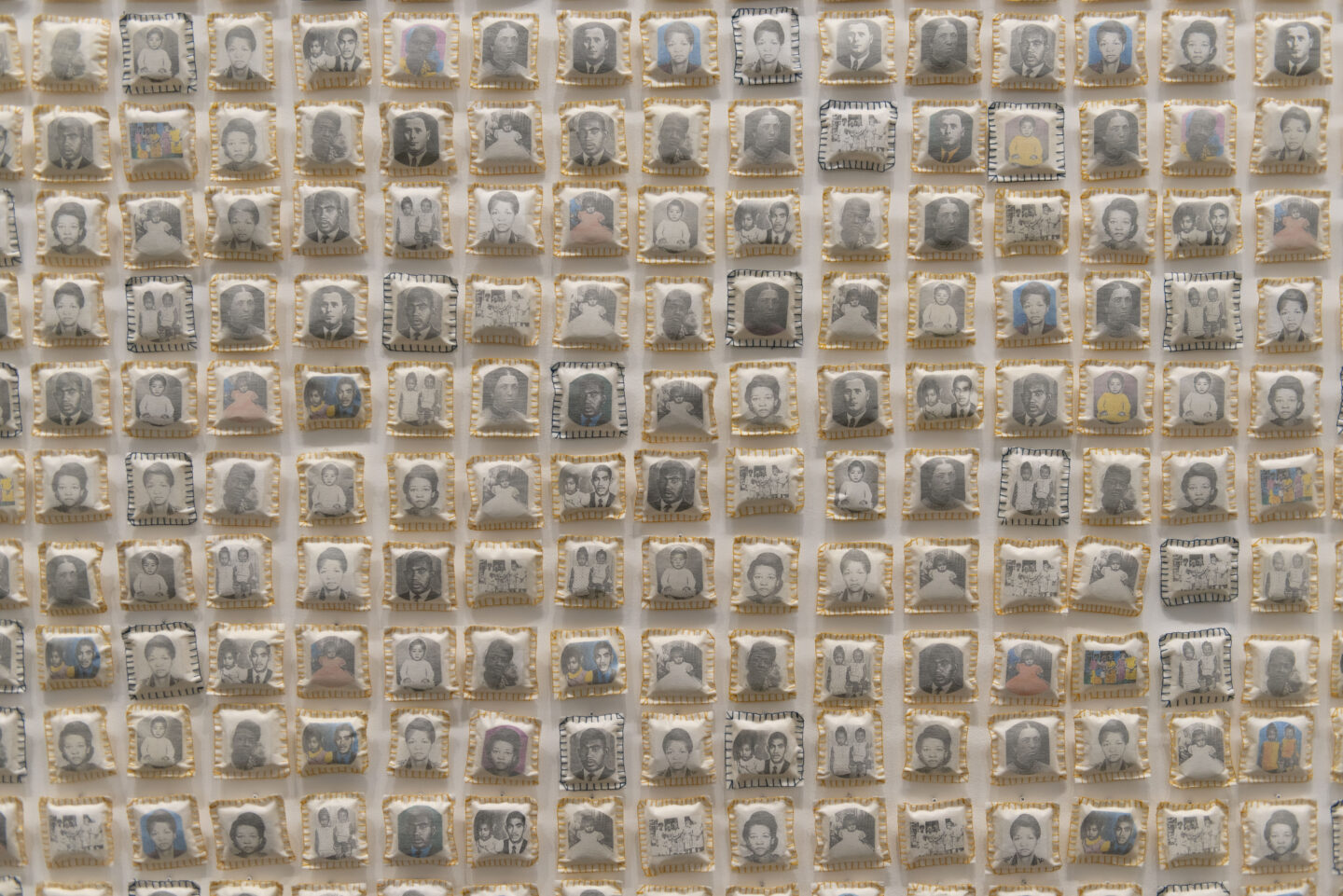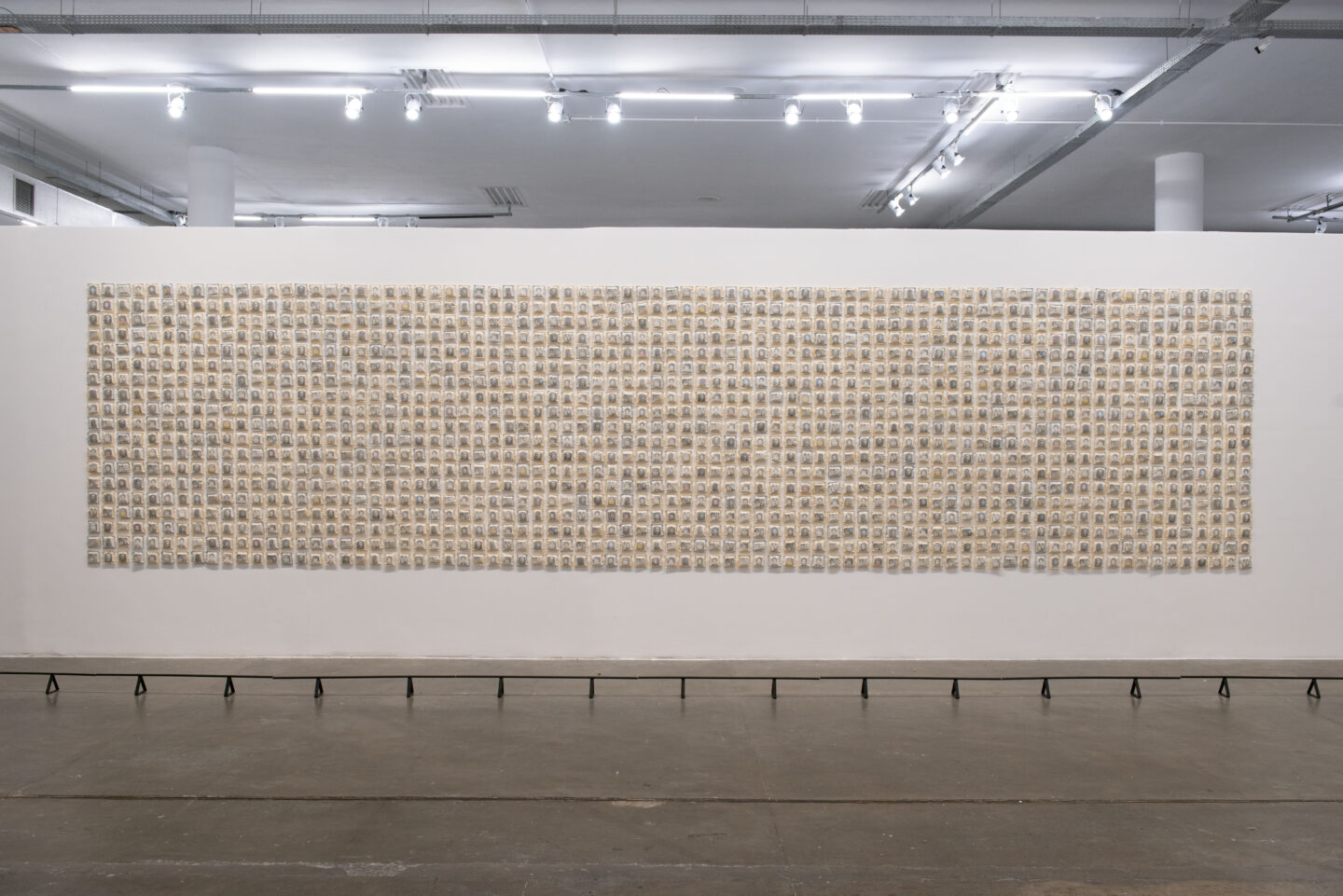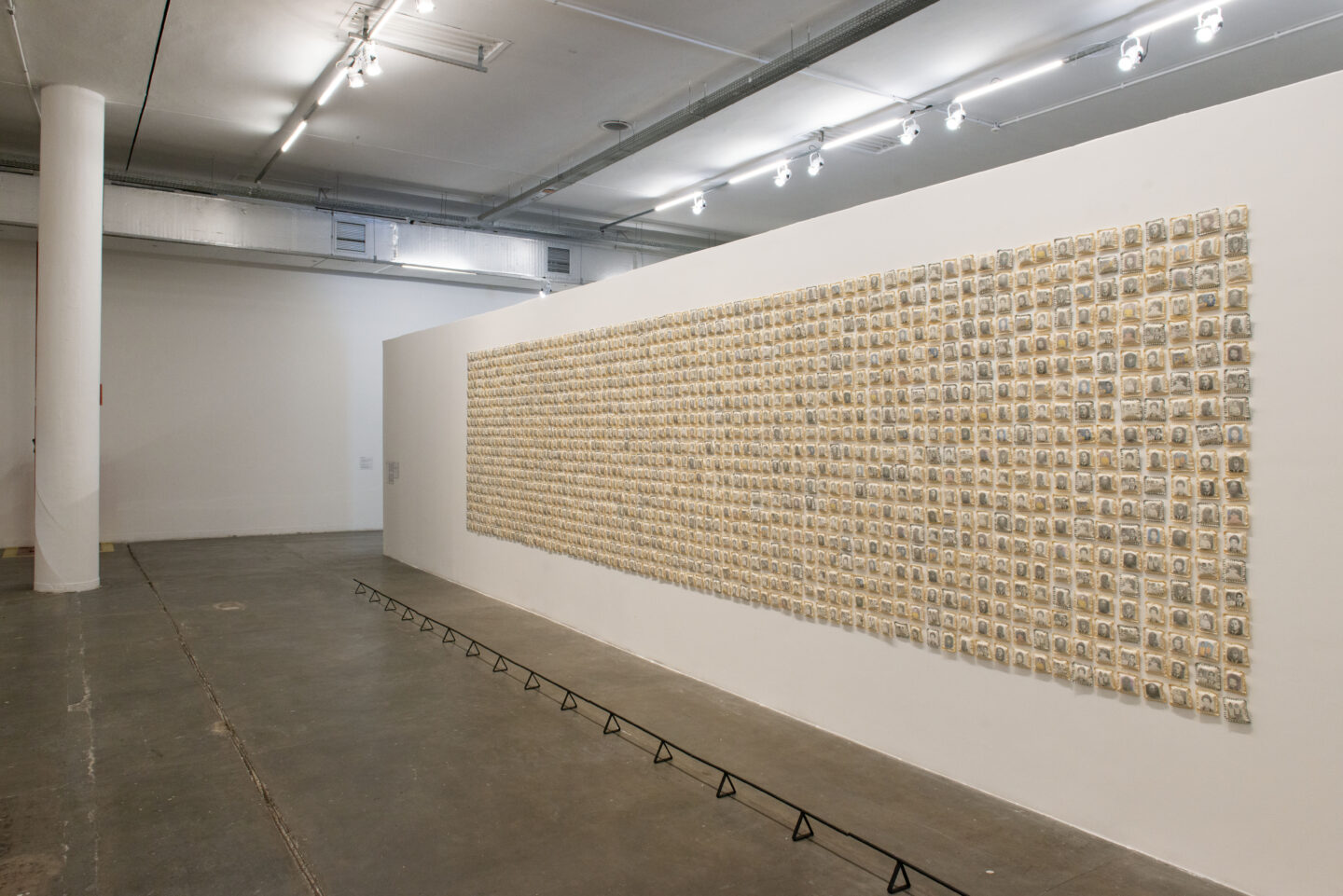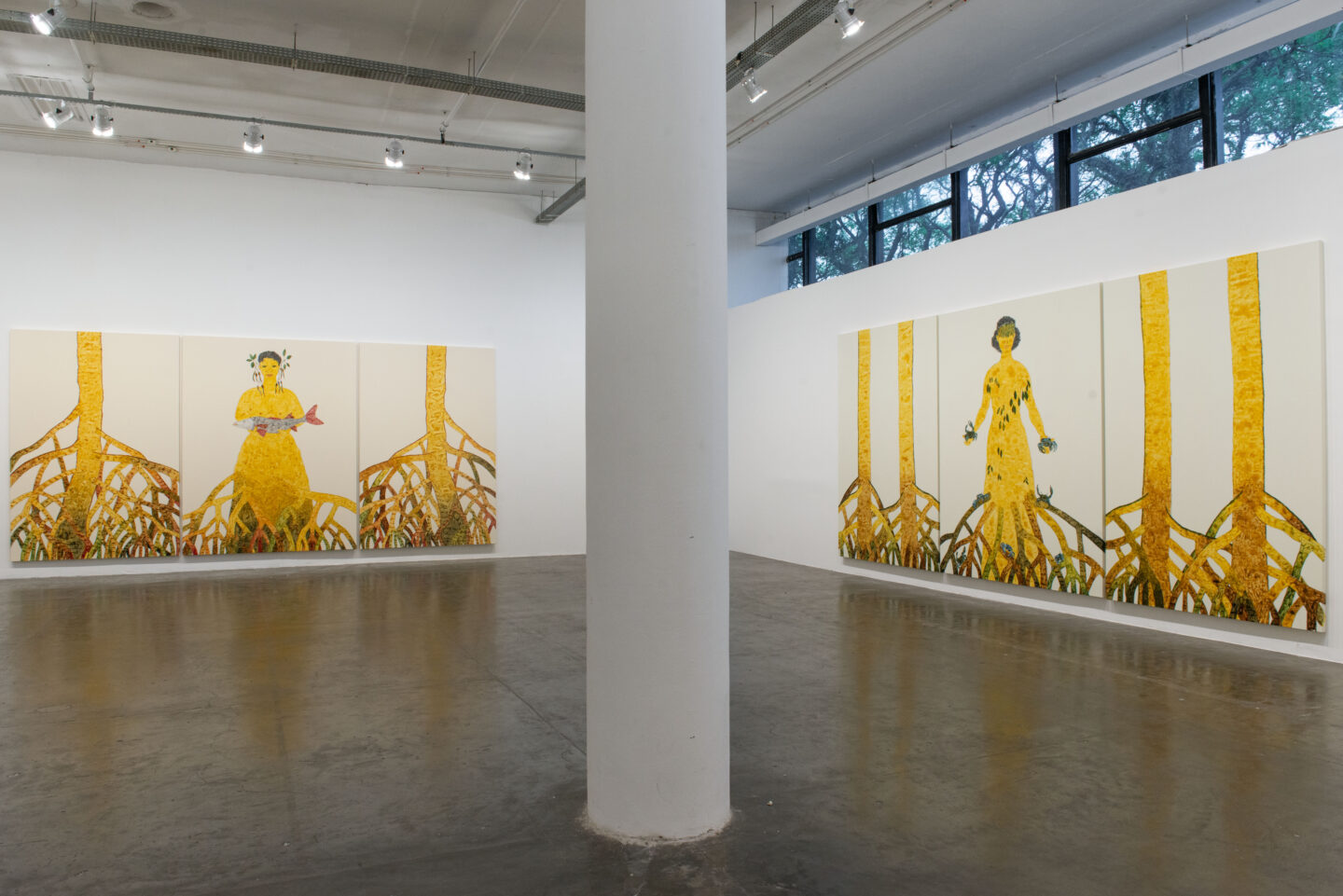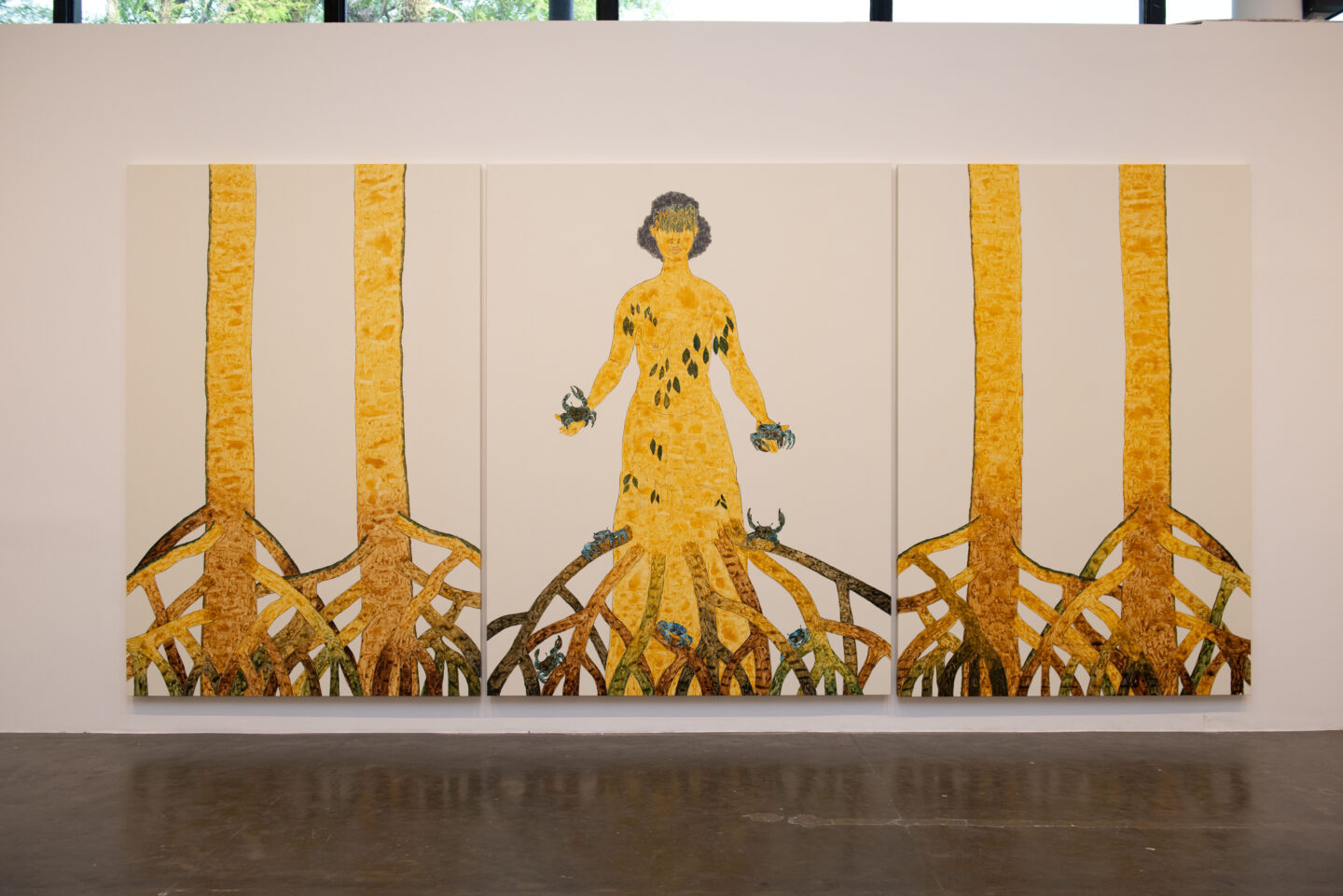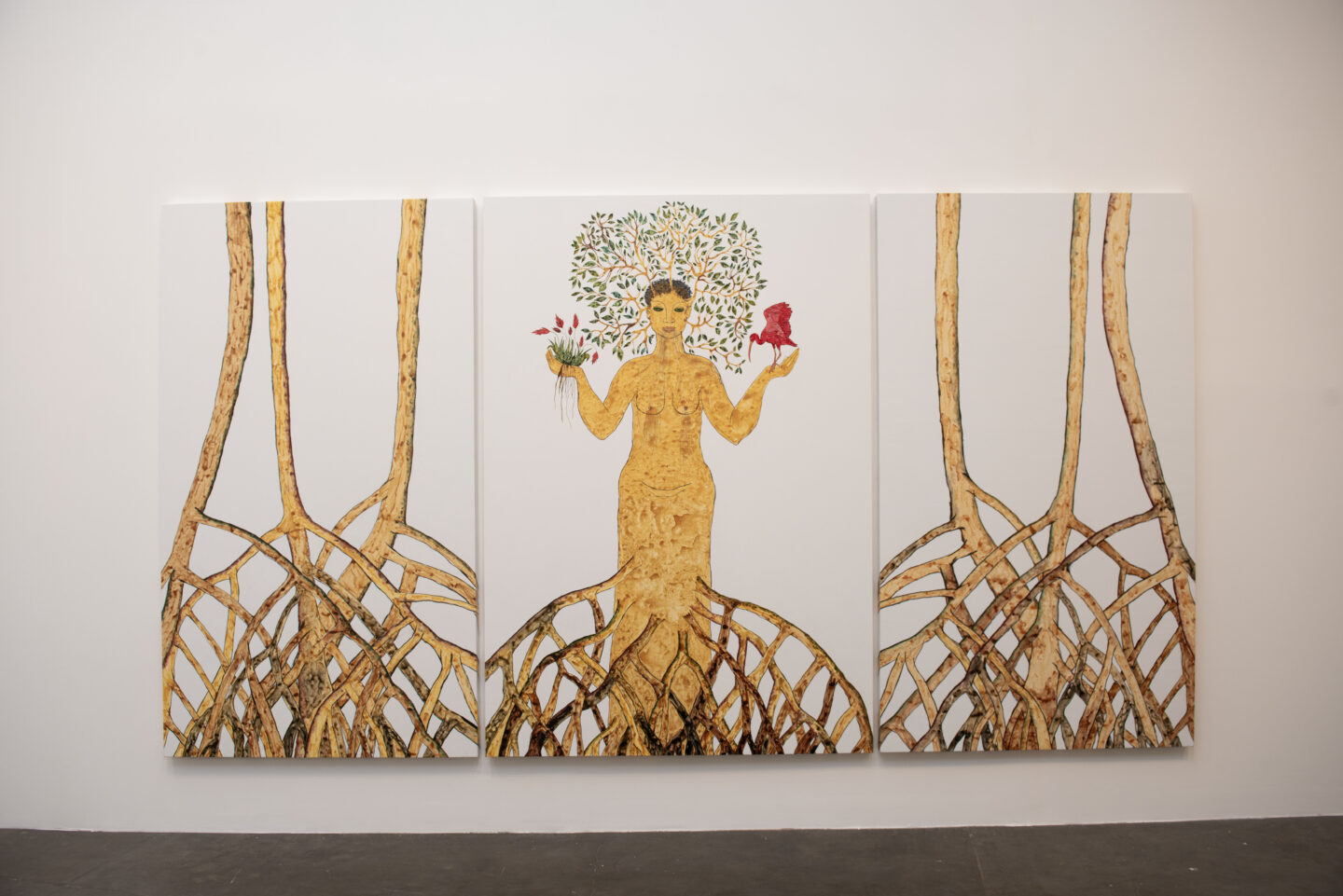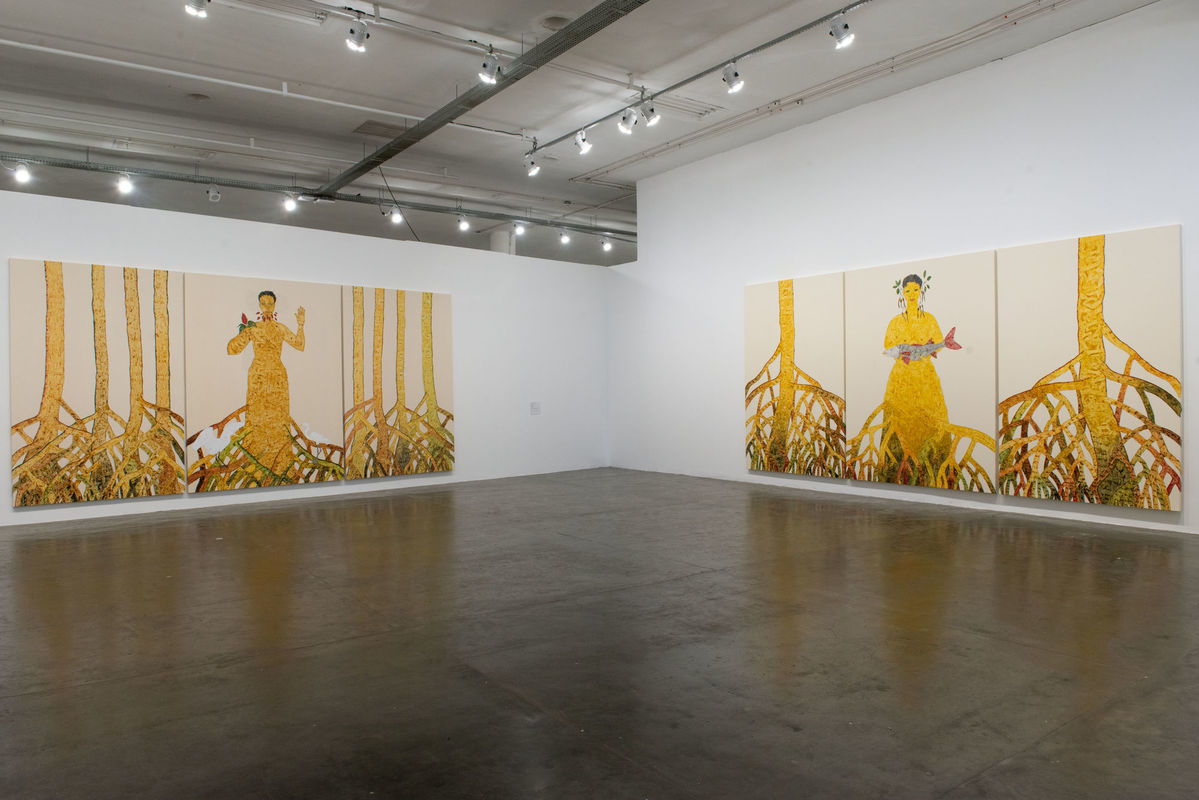
Rosana Paulino
Hypersexualization, menial work,¹ and the Black mother. These are some of the stereotypes of Black women that exist in the Brazilian popular imagination. This objectivation and sexual appropriation of the body guides behaviors and constructs identities that are always harmful. They naturalize, reduce, and fix these bodies within a relationship of domination that crosses race, gender, and class, subjecting Black women to positions of great social vulnerability.
In an act of protest that pervades her entire career, Rosana Paulino confronts this violence, deconstructing stereotypes and representations of the racialized female body, by stressing (or revealing) how scientific theories have founded the racial theories of official history. A Brazilian educator, researcher, and interpreter of Brazilian culture, with a doctorate in visual arts, Paulino turns the body into a place of memory; a body that generates thought and is filled with questions to be revisited. Speaking through and for this body, she weaves, destabilizes, and subverts the colonial certainties that run through us.
The artist’s body also carries time. A transformative time that interrupts violence and disturbs the calm of the river, reshaping memories and weaving other narratives and mythologies. In the 2019 series Búfala, Senhora das plantas and Jatobá [Buffalow, Lady of the Plants and Jatobá], in questioning the construction of a subjectivity that does not consider the Black female, Paulino constructs other archetypes and reclaims expropriated psyches and affections, revealing the closeness of these women with nature, their bodies merging with plants and animals, planting roots, growing branches and expanding the appreciation of other wisdoms, all entangled in ancestry.
And being entangled, in African and Afro-Brazilian religions, is to be a bit of things, or that is, in these religions, women are made of and make up nature. For example in the series Mulheres-Mangue [Mangrove-Women] (2022–2023), the grandmother of the grandmothers in the series Jatobá, which, with her aerial and connected roots – no longer necessary to hide – as in Afro-diasporic thought, enables exchanges and exists between worlds: she is life and death, beginning and end, land and water, sweet and salt, black and white, and the medium, like mud.
barbara copque
translated from Portuguese by georgia fleury reynolds
1. “Trabalho servil,” in the original Portuguese, is a term used to describe work done by servants, which is low -paid, often domestic, sometimes enforced, and commonly likened to the work done by enslaved people in colonial Brazil, sometimes considered as a leftover from that period. [t.n.]
- Detalhe da obra Parede da memória de Rosana Paulino durante a 35ª Bienal de São Paulo – coreografias do impossível © Levi Fanan / Fundação Bienal de São Paulo
- Vista da obra Parede da memória de Rosana Paulino durante a 35ª Bienal de São Paulo – coreografias do impossível © Levi Fanan / Fundação Bienal de São Paulo
- Vista da obra Parede da memória de Rosana Paulino durante a 35ª Bienal de São Paulo – coreografias do impossível © Levi Fanan / Fundação Bienal de São Paulo
- Vista de obras da série Mangue, de Rosana Paulino durante a 35ª Bienal de São Paulo – coreografias do impossível © Levi Fanan / Fundação Bienal de São Paulo
- Vista da obra Caranguejo, da série Mangue, de Rosana Paulino durante a 35ª Bienal de São Paulo – coreografias do impossível © Levi Fanan / Fundação Bienal de São Paulo
- Vista da obra Guará Vermelho, da série Mangue, de Rosana Paulino durante a 35ª Bienal de São Paulo – coreografias do impossível © Levi Fanan / Fundação Bienal de São Paulo
Rosana Paulino (São Paulo, Brazil, 1967. Lives in São Paulo) is a visual artist, researcher and educator, with a doctorate in visual arts from the University of São Paulo and specialization in printmaking at the London Print Studio. Her work deals with social, ethnic and gender issues, with a special focus on black women in Brazilian society and the various types of violence suffered by this population due to racism and the lasting legacy of slavery. Among other exhibitions, her work has been shown in the main show of the 59th Biennale di Venezia (Italy), and the 21st Bienal Videobrasil (São Paulo, Brazil).

 Português
Português